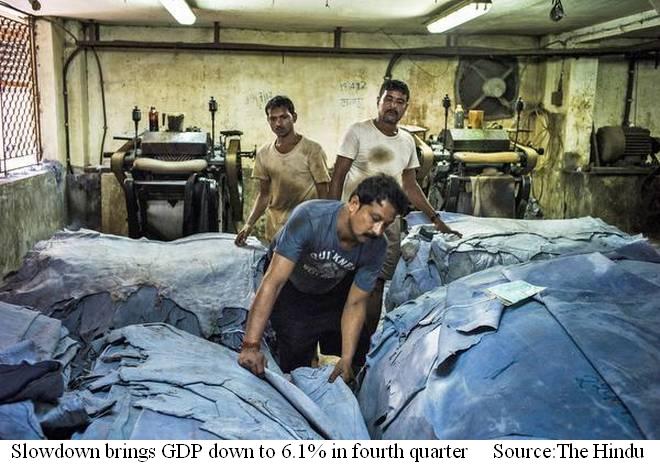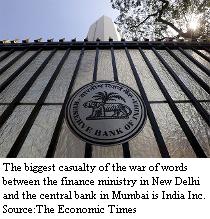|
||||||||
|
|
|
2017-06-26 ArtNo.46024
◆India is no longer the fastest-growing economy
 【New Delhi】India lost its tag as the ‘world’s fastest-growing economy’ last month as its fourth quarter GDP growth fell to 6.1%, the slowest in two years. China marked 6.9% in the same period. Very few economists expected the slowdown. In fact, most waited for the economy to rebound as it quickly healed from the impact of the demonetisation of high-value rupee notes in November. Critics of demonetisation felt vindicated, particularly after GDP figures for the third quarter suggested that the shocking, overnight move to demonetise had very little negative impact. Yet, for all the sermon delivered by the country’s punditry, the fact remains that macroeconomic forecasting is a lousy business — regardless of who makes the predictions. For one, data cannot prove or disprove any hypothesis as they do not establish causation. The mere fact that growth slowed in the first full quarter after demonetisation does not prove decisively that the slowdown was caused by demonetisation. As some have speculated, the current slump in the growth rate may be a continuation of the trend of slowing growth witnessed even before demonetisation. ○Biggest casualty of war of words between FM and RBI is India Inc  【New Delhi】First they conveniently lost their voice; then they miraculously got it back. But now that the pundits of India's economic establishment are talking again, all investors hear is discord. The biggest casualty of the war of words between the finance ministry in New Delhi and the central bank in Mumbai is India Inc. Without clarity on where policymakers want the cost of capital to be, reasons for highly indebted companies to restart work on mothballed projects, or dream up new ones, are being drowned by doubts about profitability. The battle of the mandarins has its origin in the Nov. 8 demonetization. The ban on 500- and 1,000-rupee notes removed 86 percent of the currency in circulation from a cash-dependent economy. It also made officials wary of doing or saying anything that would amount to questioning the weird economics of the move. Gadfly was surprised when, amid an extreme cash crunch in December, the Reserve Bank of India didn't cut its policy rate by even a quarter percentage point. At the time, though, Arvind Subramanian, the chief economic adviser in New Delhi, described the non-action as a "brilliant call." Then last week, when the RBI again stood pat, the same official protested loudly, saying the economy had decelerated from last July, and substantial monetary policy easing was warranted because inflation-adjusted interest rates were too high, corporate and bank balance sheets too weak, and the investment impulse too anemic. 【News source】 India is no longer the fastest-growing economy Economic forecasting is not a science Biggest casualty of war of words between FM and RBI is India Inc ○One world: The aim of SEAnews ◆Recruitment of Ad-SEAnews CanvassersYour Comments / UnsubscribeSEAnews TwitterSEAnews MessengerSEAnewsFacebookSEAnewsGoogleSEAnews eBookstoreSEAnews eBookstore(GoogleJ)SEAnews world circulation |
|
[Your Comments / Unsubscribe]/[您的意见/退订]/[ご意見/配信停止]
Please do not directly reply to the e-mail address which is used for delivering the newsletter. 请别用递送新闻的邮件地址而直接回信。 メールをお届けした送信専用アドレスには返信しないで下さい。 |